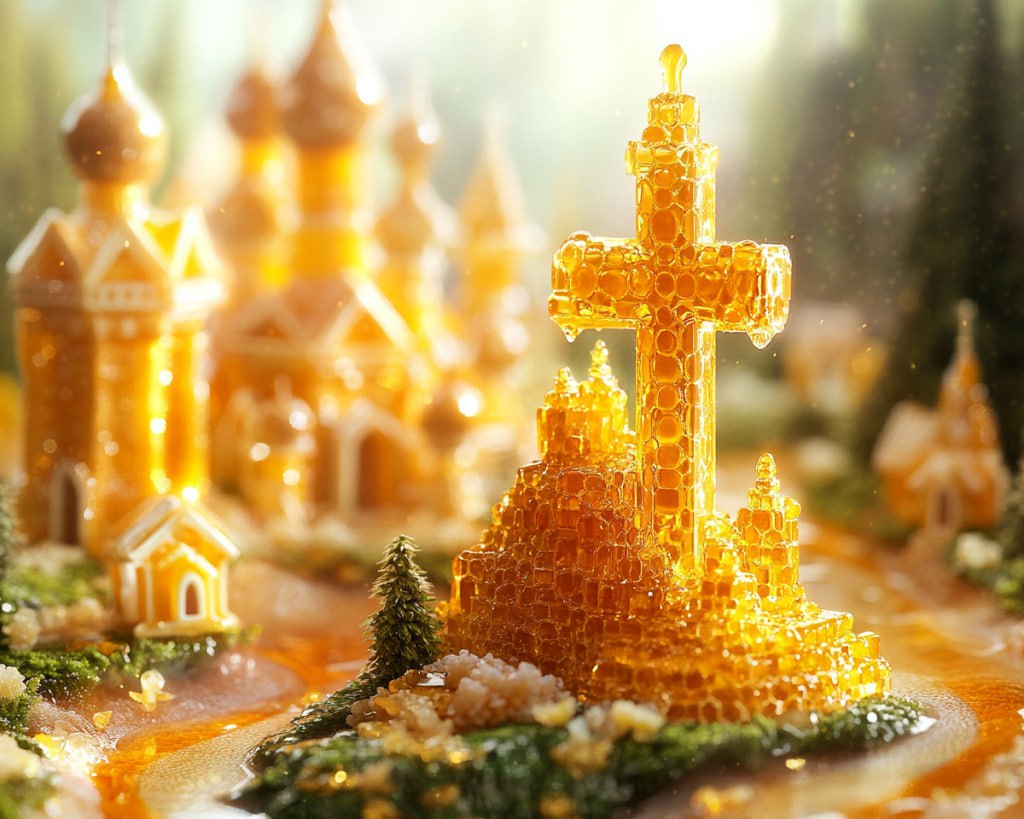Mircea Eliade believed that among the Slavs, Vlachs, and Moldovans, Christianity acquired a completely unique character. This then influenced the Greeks as well, completing a full cycle — from the Greeks to the Slavs and back. Eliade called this phenomenon “cosmic Christianity.”
The idea is that the Orthodox tradition was integrated by the Slavs into a living, sacred cosmos, elevating and transforming it (rather than erasing it, as in Western European Christianity). He saw evidence of this primarily in church holidays and customs, liturgical calendar events, and the interpretation of saints.
The figures, stories, dogmas, and concepts of Christian tradition were projected not into a void or abstract moral constructs of an autonomous subject but into the very flesh of the everyday reality, into the structures of everyday experience. In this way, the dematerialization of reality occurred, raising it into subtle spheres of light where earth met heaven, time met eternity, and creation met the Creator. The Church became cosmic, not just human. Both individuals and the elements were transformed within it. After all, even elements are partly personalities — Mother Earth, Brother Fire, Bride Water.
“The creation waits in eager expectation for the children of God to be revealed,” wrote the Apostle Paul for all Christians. However, it was truly understood only by the Orthodox Slavs, that is, by us Russians.
The cosmos and its things — honey, wood, water, animals, nuts, apples, birds, fish, cabbage, iron, fire, and all the rest — also long for salvation from the claws of distorted, devil-poisoned (by the temporary prince of this world) matter. They await Christ. When He comes and accomplishes the great work of salvation, they cling to those who have followed Christ, like domestic animals — gently and faithfully.
The Savior saves the bees, honey, apples… On Saint Barbara’s Day, women cook porridge, Saint Nicholas, the Winter Helper, aids in saving the mead, and Saints Cosmas and Damian oversee the forges and scythes. The Virgin Mary on the Feast of the Protection covers brides with her veil, blessing their marriage, and marks the suffering, tear-dampened Mother Earth with the first white snowflake. Snow is also a creation of God, and someone must save it too.
Cosmic Christianity is precise and profound.
Today is the Honey Feast Day. This means that the bees and their invisible, exalted, unceasing labor are blessed. They turn bitterness into sweetness, and the beekeepers appreciate this, allowing others to partake in the sweet mystery.
The other, official, name of the holiday is the Procession of the Honorable Wood of the Life-Giving Cross of the Lord, but again, we see cosmic Christianity. Many legends are associated with the trees from which the Cross, through which the universe was saved, was made. These legends include Lot, who begged forgiveness for his involuntary but terrible sin, which gave rise to the dynasties of Canaan — Moab and Ammon. And the Queen of Sheba, who refused to walk on the bridge that used these sacred trees. And Adam, as these trees were planted by him in Paradise and exist eternally.
The Cross is the Tree of the World. In the fall, during the Feast of the Exaltation of the Cross, the priest solemnly blesses the four corners of the world (for space must be saved too!) from top to bottom, bowing to the very floor with the Cross on his forehead. To do this thoroughly and unhurriedly, blessing every span of space, the priest is supported by two assistants holding a cloth. One must not rush in the work of salvation. Everything and everyone must be saved carefully, missing nothing and forgetting no one.
Happy Honey Feast Day! With holy honey! With the Tree that saved us and the unchanging memory of which we carry on our chest — from baptism to the funeral service. We take it with us to the grave — to rise with it again.







